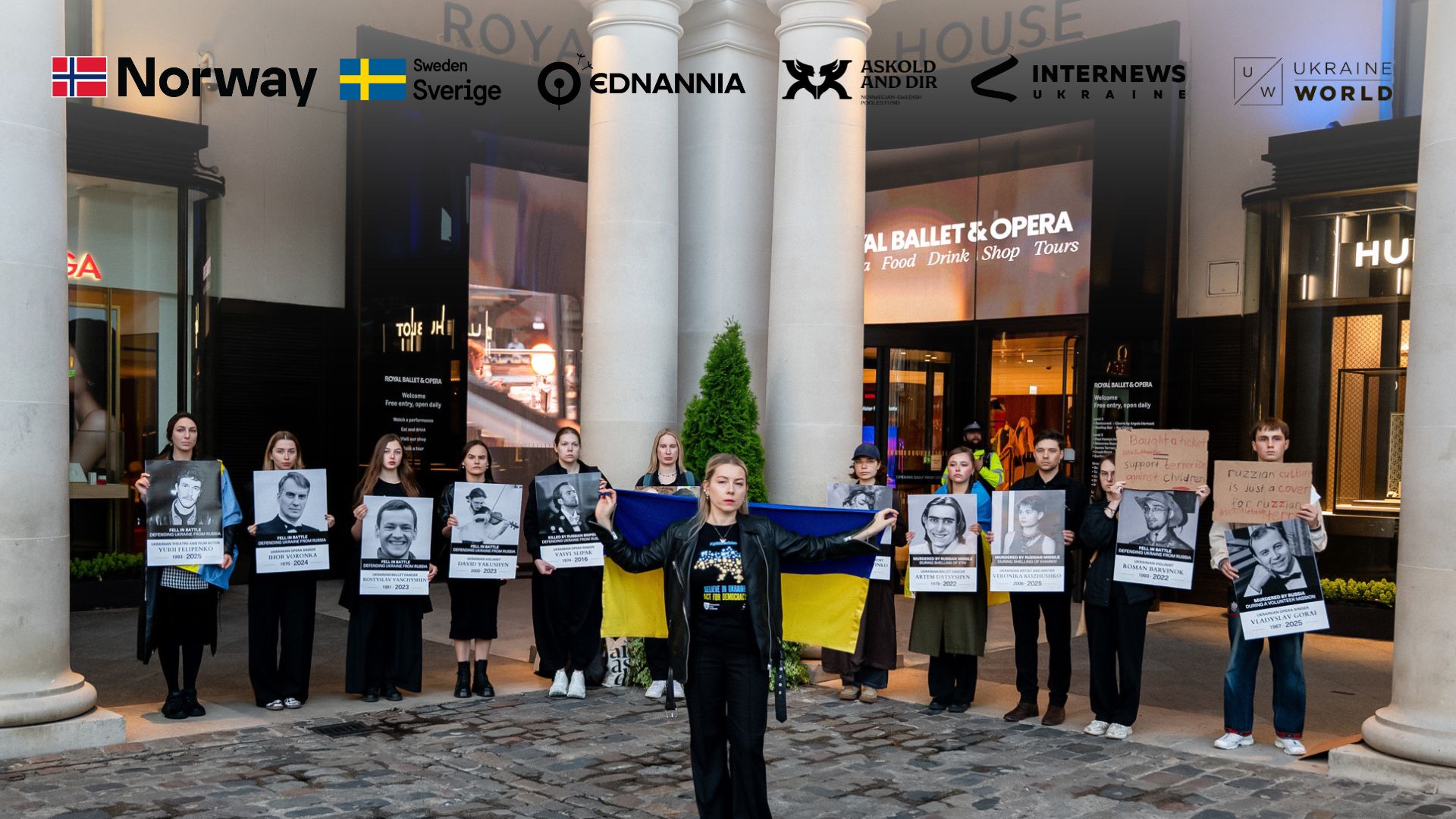
Modern wars are no longer fought with weapons alone, no matter how powerful they are. Alongside the battles on the frontlines, another struggle must take place: the struggle to communicate Ukraine's story, to advocate for it abroad.
It's not a war in the literal sense, because it doesn't take lives directly, but decisions depend on it: weapons and humanitarian aid, the recognition of Russia's crimes and its leaders as war criminals, support for refugees and help in rebuilding Ukraine's future.
To understand this mission and its significance, we spoke with Olena Ivashchenko, a Ukrainian activist and director of the NGO Campaign for Ukraine. Our conversation exploreswhy communication and advocacy matter and how to make them meaningful. We also talked about the challenges behind them and about the powerful moments when Ukrainian voices abroad were truly heard.

Advocacy abroad isn't just about slogans or statements, it's a force that turns awareness into action. It could help mobilise military and humanitarian aid, influence parliaments and policies and build pressure for justice, including the prosecution of those responsible for war crimes.
For Ukrainians who are now abroad, joining rallies and campaigns could give them something more than just activism. It could create a sense of belonging and purpose and allow people to feel connected to their homeland while forging new communities abroad and strengthening global solidarity.
At the same time, making injustice visible could send a message that goes far beyond Ukraine: that aggressors can be named, challenged and held accountable.
War fatigue is real and dangerous. People are tired of hearing about Russia's war against Ukraine, even from partners, allies, and friends. Because the war feels distant, that doesn't mean it couldn't come closer. The aggressors' propaganda machine also exploits this fatigue to halt or minimise support for Ukraine.
Ukrainians don't "look" like victims, but they are still hurting. Ukrainians abroad often don't fit the typical image of suffering: not starving or looking broken, but that doesn't mean they have no problems.
Ukraine is not the only country suffering: other wars, global crises like climate change, cost-of-living issues and hunger also demand attention. Sometimes it's hard to compete for a chance to be heard, however, Ukraine must remain visible, not instead of other tragedies, but alongside them.
When local problems hinder global empathy. Each country faces its own internal issues: political, social, and others, which naturally have a priority.
Russian propaganda is everywhere - and it's loud. Fake news, twisted facts, coordinated trolls, etc. Russia spends its vast resources to spread false narratives about the war and itself, it has done so for a long time and continues its efforts.
Culture and sport are considered separate from politics. Russian officials or sympathisers often use this argument. When Russia promotes its culture, using figures like ballerinas and opera divas, they are often not just performing. These individuals often are strong supporters of the war and imperial narratives, a fact unknown to global audiences.
Advocacy has to be fast, but also thoughtful. News breaks fast and sometimes there is just one hour to respond: print posters, write statements, organise people. But advocacy also has to be ethical, strategic and emotionally intelligent.
Emotional burnout hits activists hard. For activists, advocacy isn't just strategy, it's personal: holding the portrait of a killed artist, knowing how many performances they'll never give... or hearing a deported child tell their story - it is not just "raising awareness" and it doesn't end when the rally is over.
Data isn't enough - people need to discover stories behind them. Saying "20,000 children" is powerful, but without stories, it's just a number.
Some topics are harder to talk about. Sharing stories of children is easier for people to relate to, as they don't trigger the hesitation or discomfort that messages about POWs or military aid might.
Campaign for Ukraine emerged in the first months of Russia's full-scale invasion, driven by the belief that advocacy could be a powerful tool for impact, not only in the streets, but also in parliament halls, cultural institutions, and the media. Based in the UK, the organisation combines legal expertise, human rights advocacy, creative campaigning and cultural diplomacy to make Ukraine's voice heard and felt across British society.
What began as a volunteer initiative has grown into a professional platform that works at all levels, from shaping public opinion to engaging decision-makers, in close cooperation with both UK and Ukrainian institutions
Campaign for Ukraine stands for results-driven advocacy, international solidarity, and lasting bridges between Ukraine and the United Kingdom.
The goal is to keep Ukraine's voice present and powerful on the global stage,so that international support not only continues, but grows stronger. Over the past three years, the team launched more than 50 advocacy and cultural campaigns.


Campaign for Ukraine has made the issue of deported Ukrainian children one of the central themes in their advocacy. The team's role is to keep this crime visible, emotional, and impossible to ignore.
What began as a series of protests has grown into a full-scale advocacy front that unites activists, politicians, and communities across the UK and around the world.
On June 1, 2025, the organisation led a mass rally in London, bringing together more than 7,000 participants and inspiring similar marches worldwide.
The team also delivered a petition to 10 Downing Street, launched an appeal to the Princess of Wales, received an official response, and, with colleagues from the Ukraine Solidarity Campaign, secured a London Assembly motion urging the city's mayor to raise the issue with the Prime Minister.
Parliamentary hearings featured voices like Mykola Kuleba (Ukrainian social and political activist and former Presidential Commissioner for Children's Rights) and Kseniia Koldina, a 20‑year‑old survivor of deportation.
The team also led a torchlight march at the Kindertransport memorial alongside Lord Dubs, a former WWII refugee, and invited children who had lived through the occupation to speak at a rally marking the third anniversary of the full-scale invasion.
Each event served one purpose: to ensure the world does not look away.
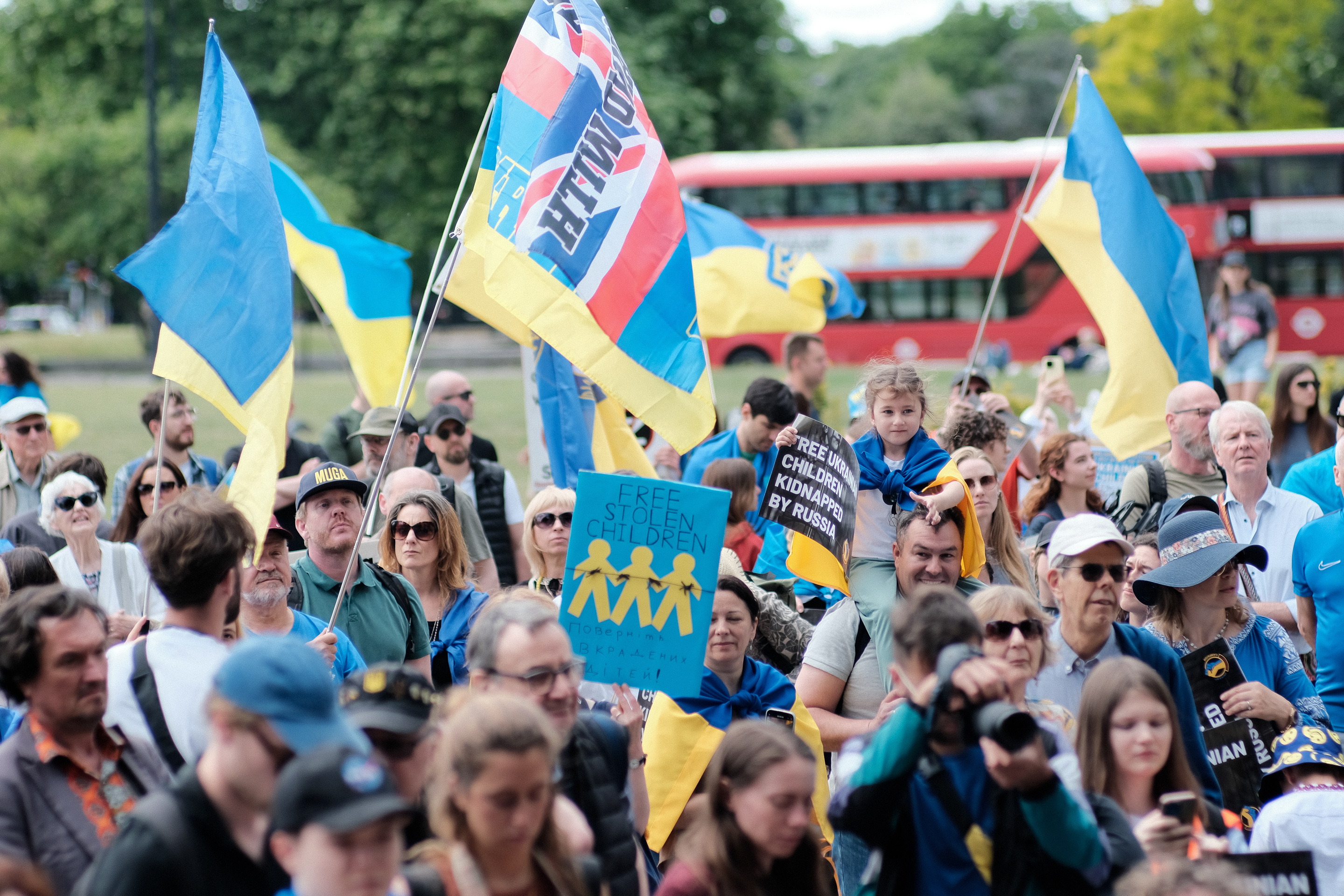
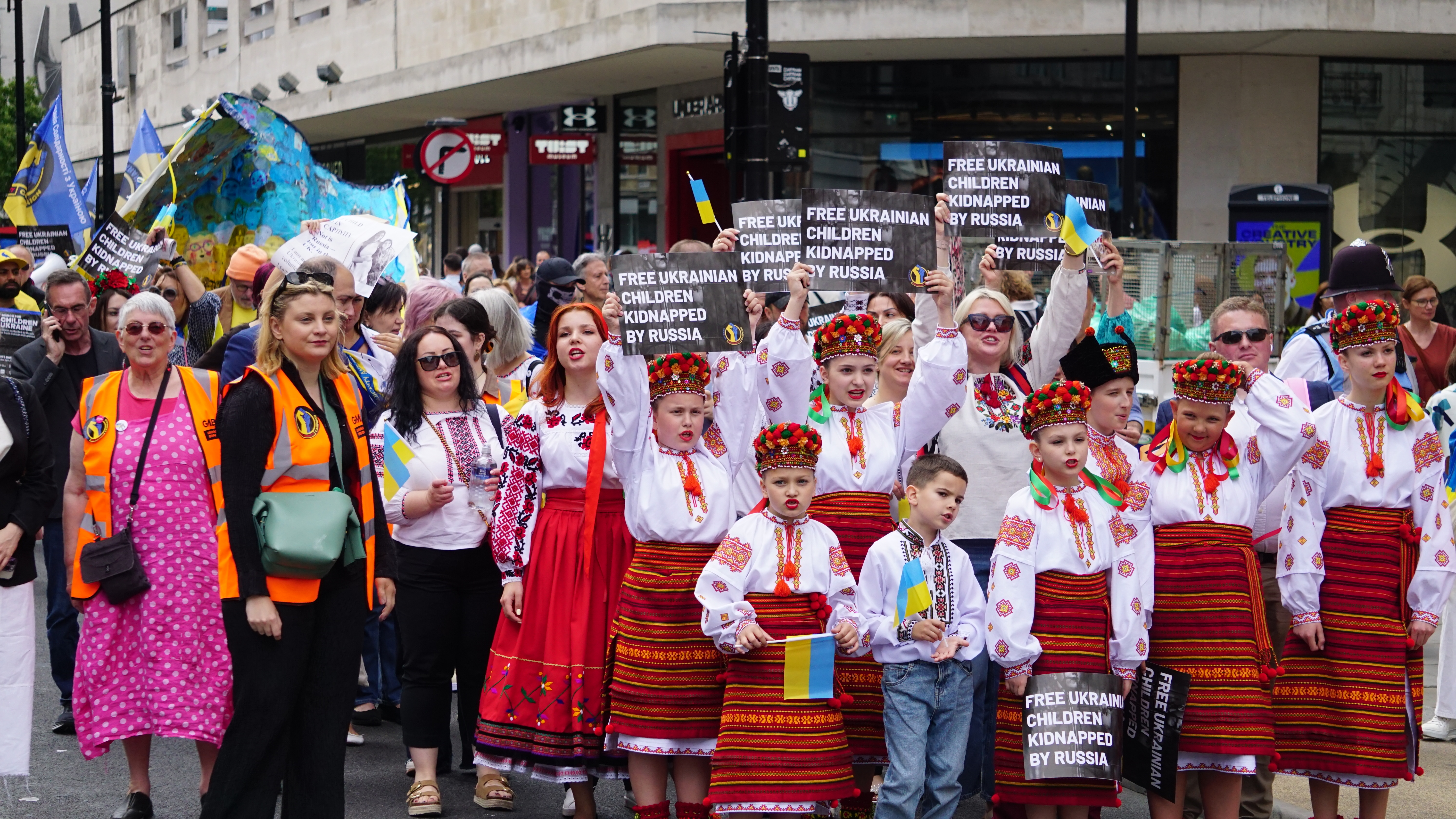

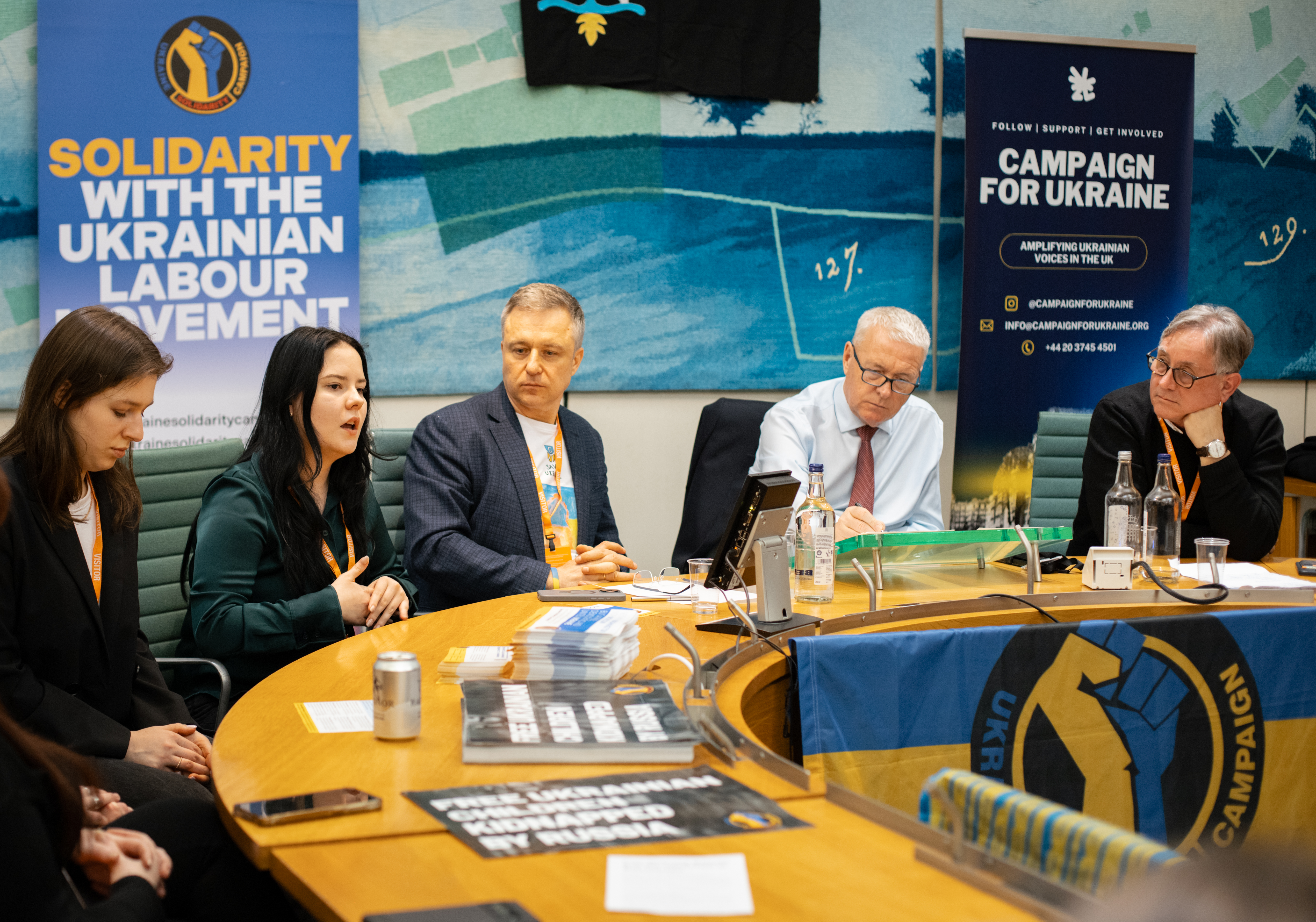
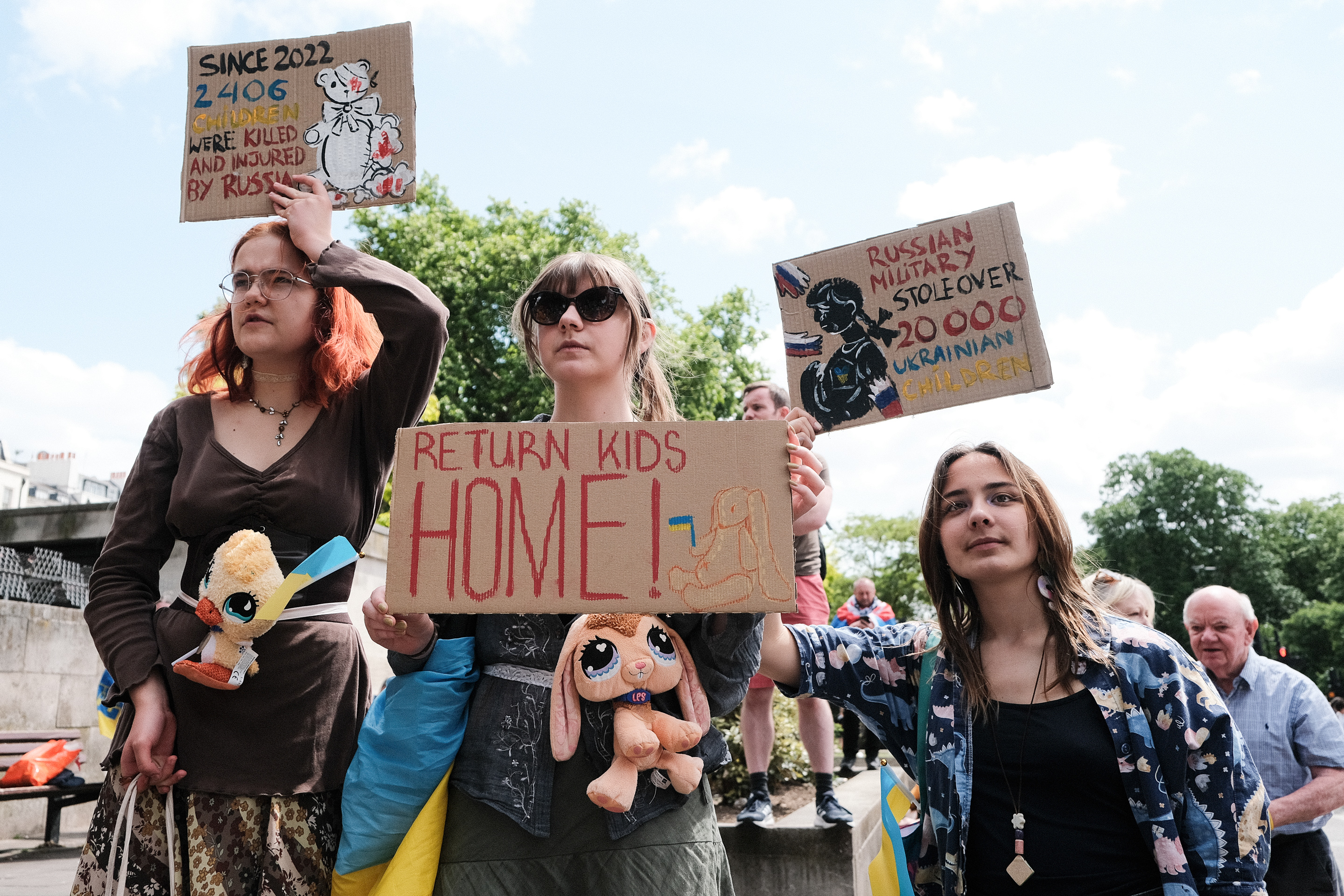
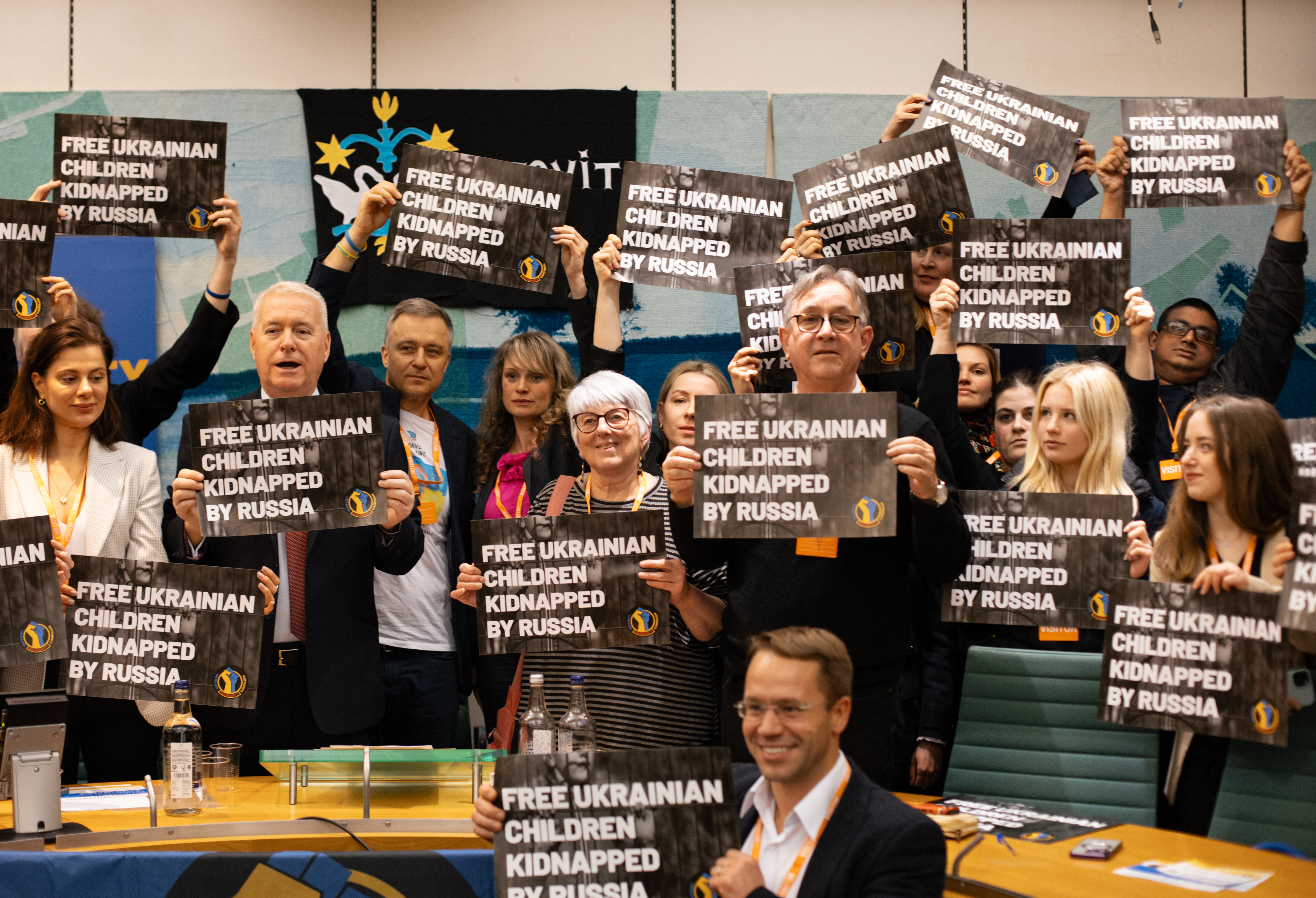
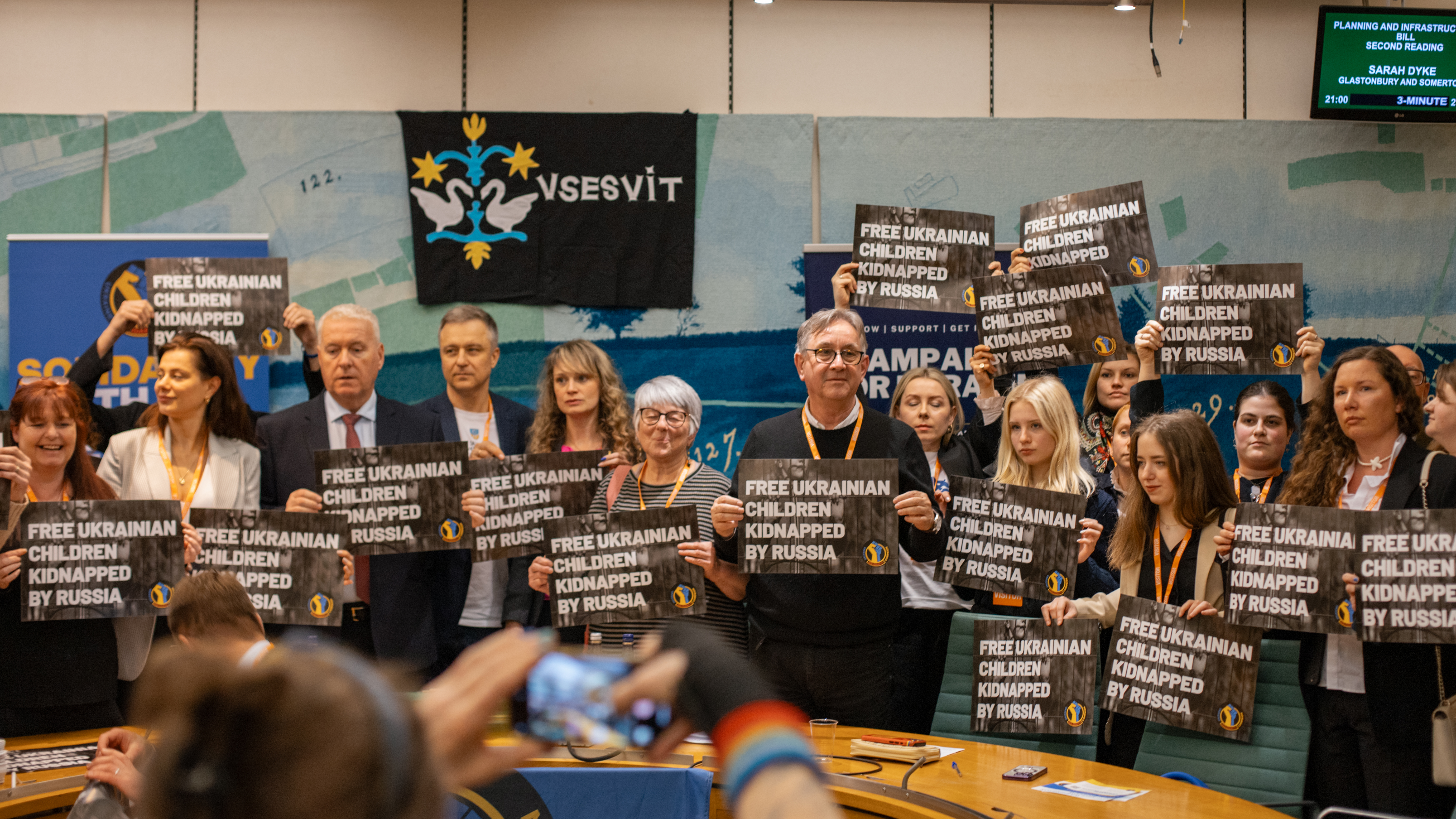
The organisation has led successful campaignspushing global brands like Unilever, Canva and Avito to exit the Russian market, and played a key role in revoking royal honours from companies still operating in Russia.
In the security sector, they have promoted long-range weapons, supported F-16s for Ukraine,lobbied for vehicle donations and actively engaged with MPs and committees to influence parliamentary discourse on military aid.
The team amplified Ukrainian voices on major platforms, like Discover Ukraine Festival during Eurovision anda BBC-broadcast Christmas concert with Stephen Fry. Their participation at London and Brighton Pridehighlighted a dedication to inclusive visibility, while partnerships like the Shadow Project support the decolonisation of Ukrainian art in the UK and beyond.
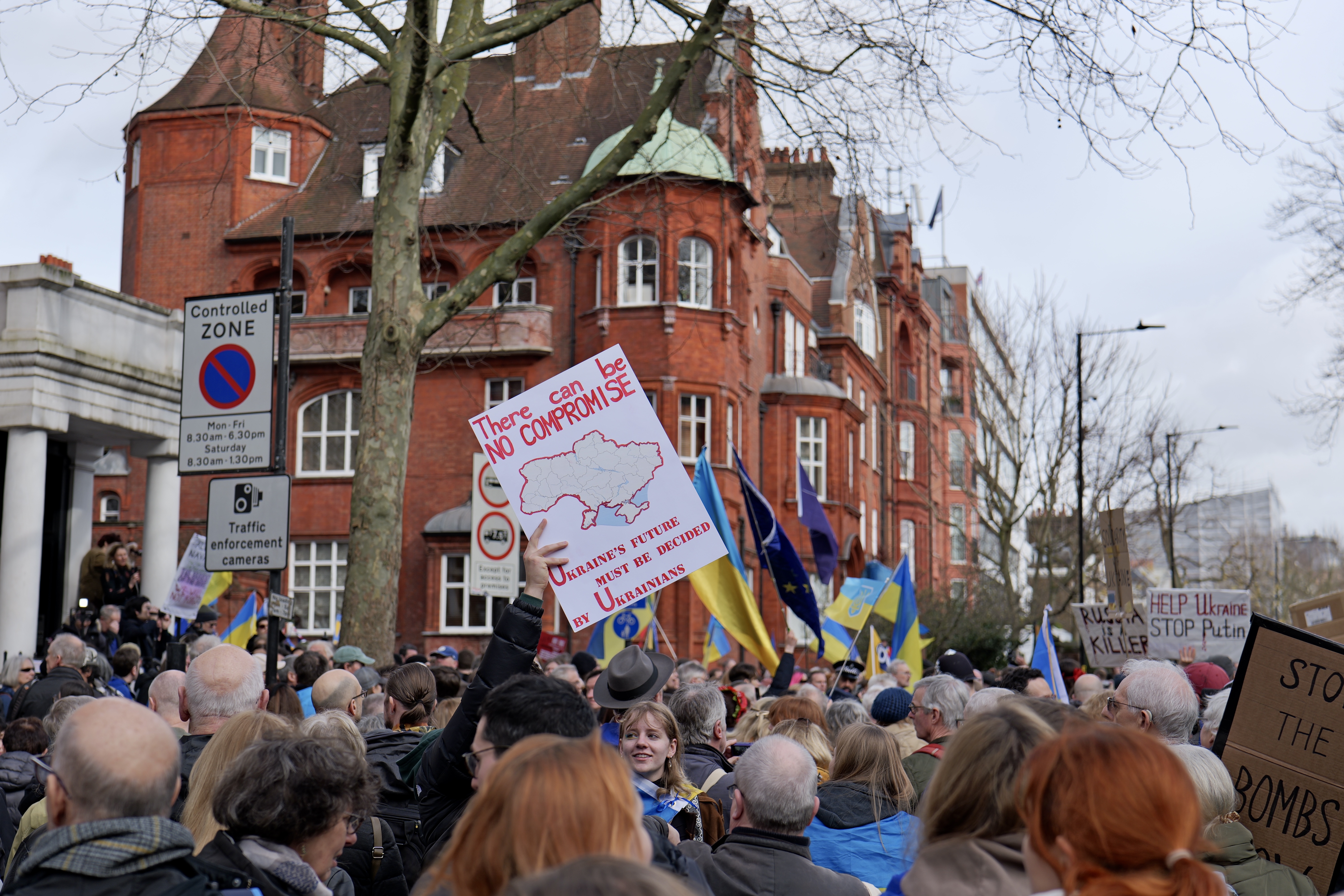
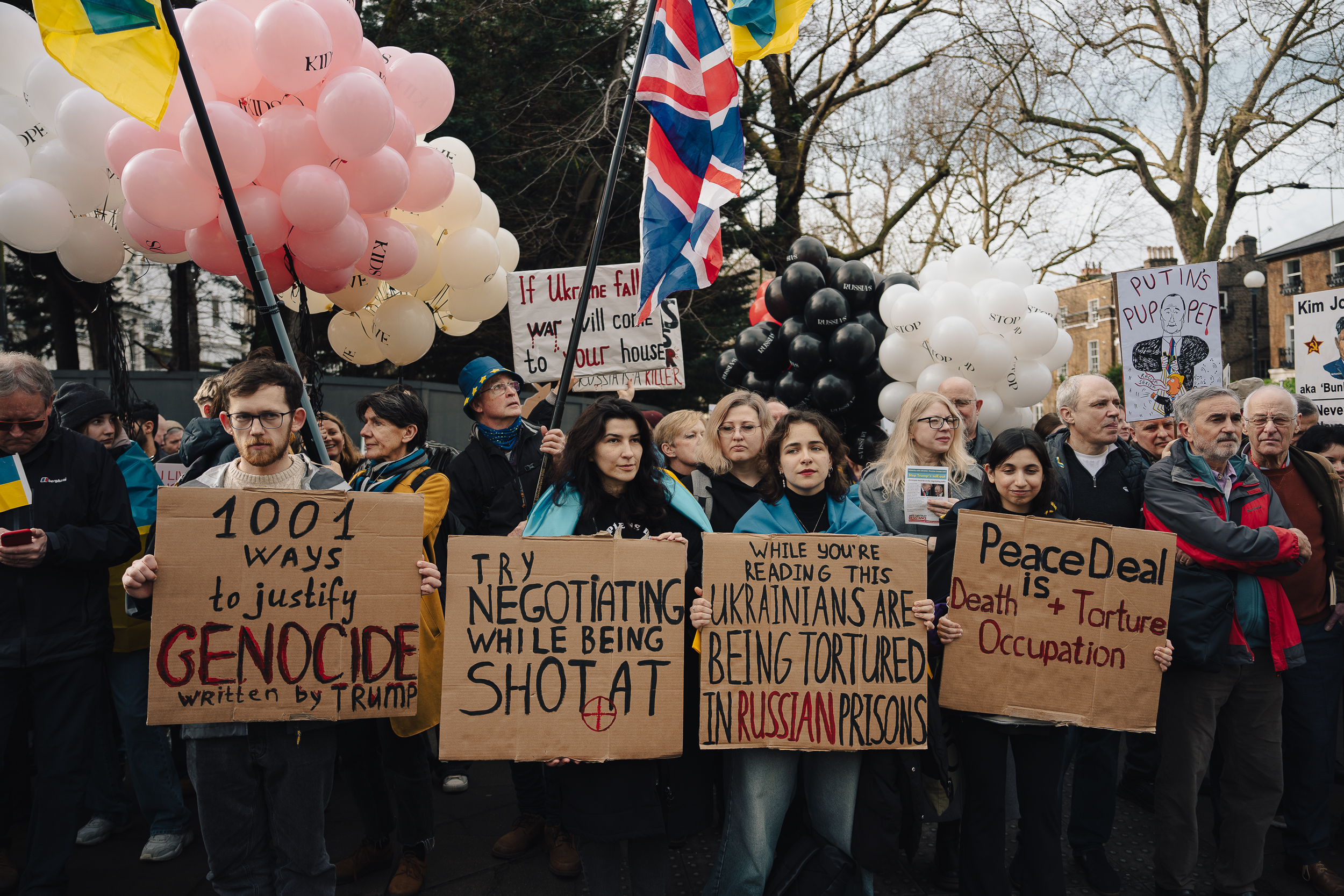
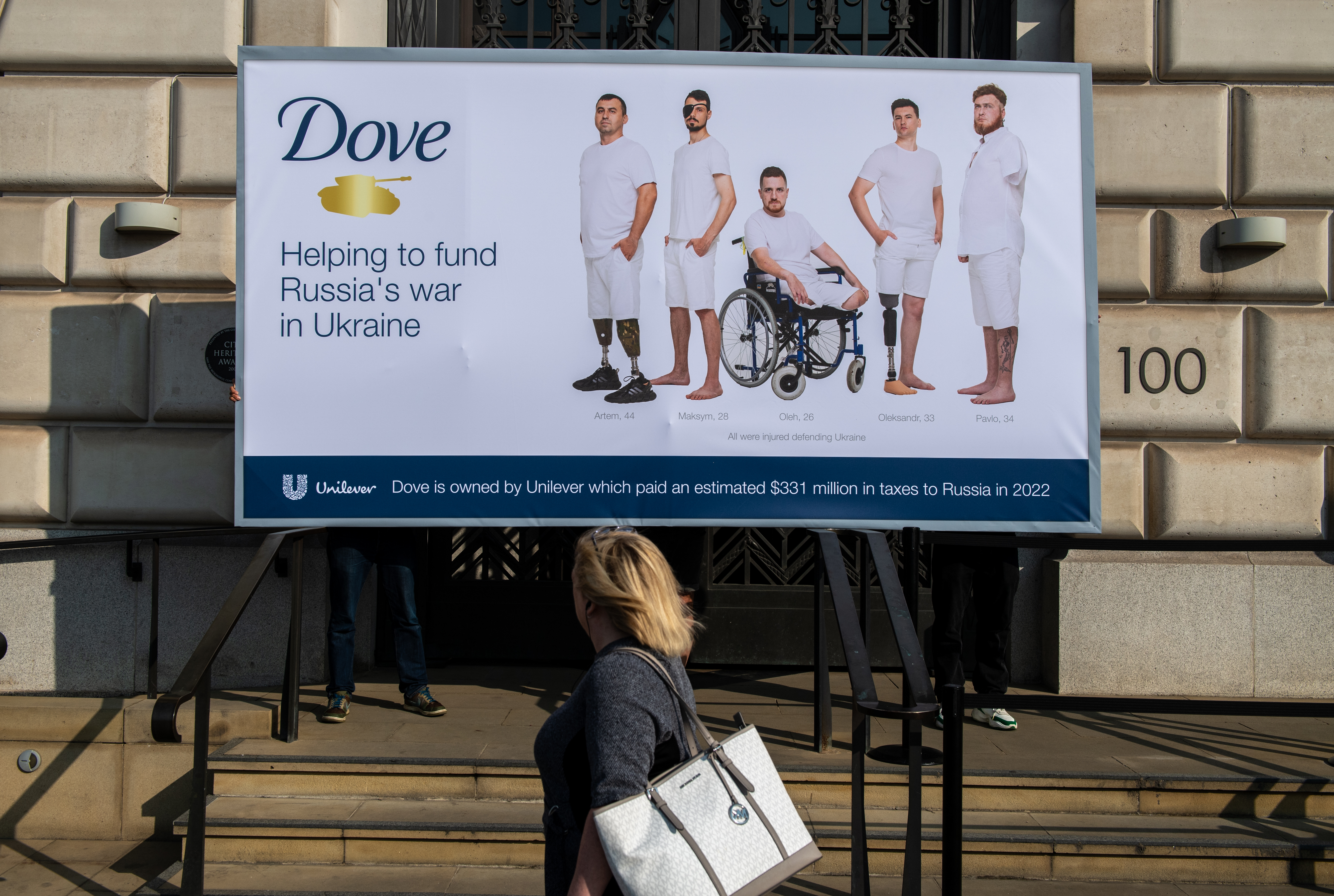
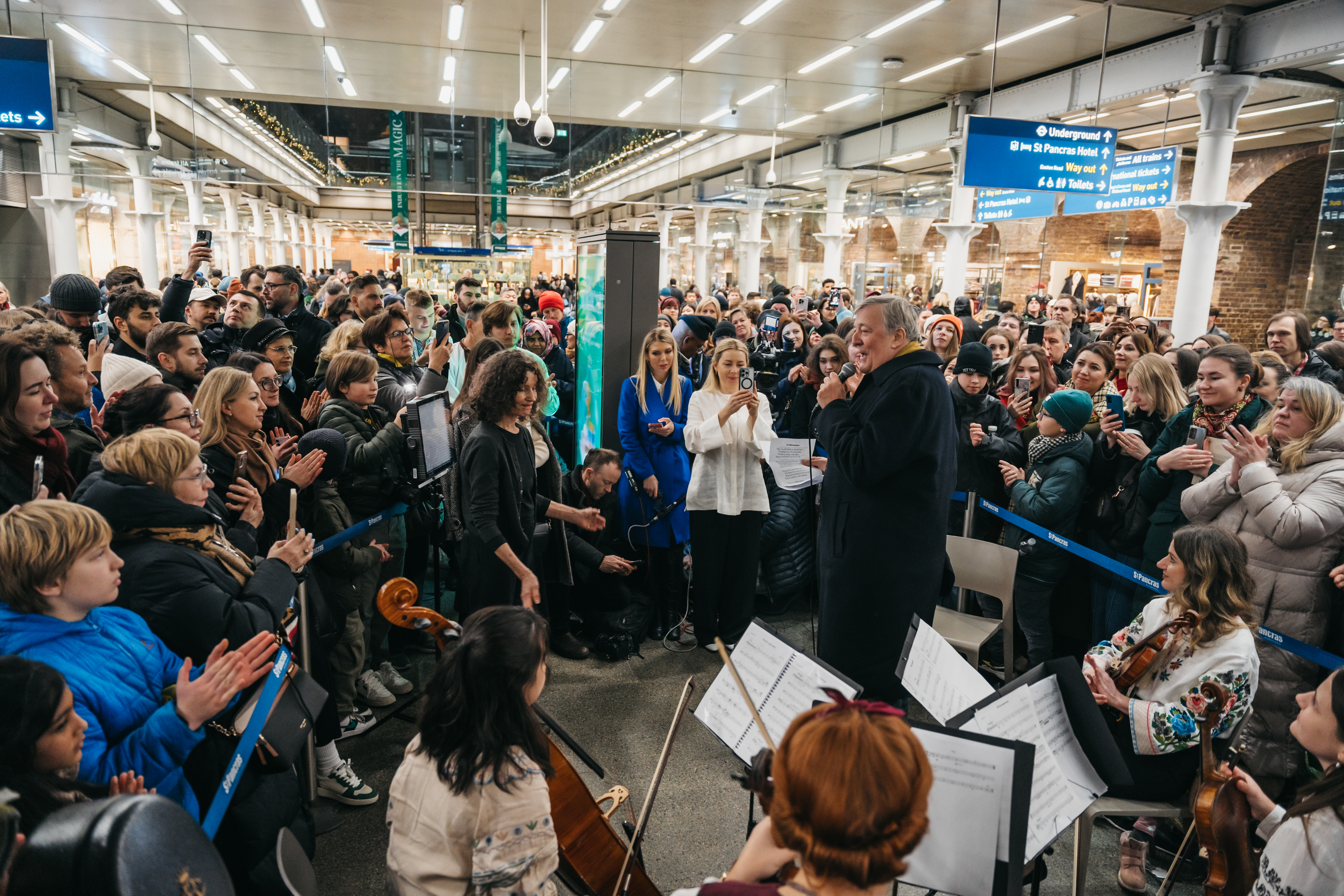
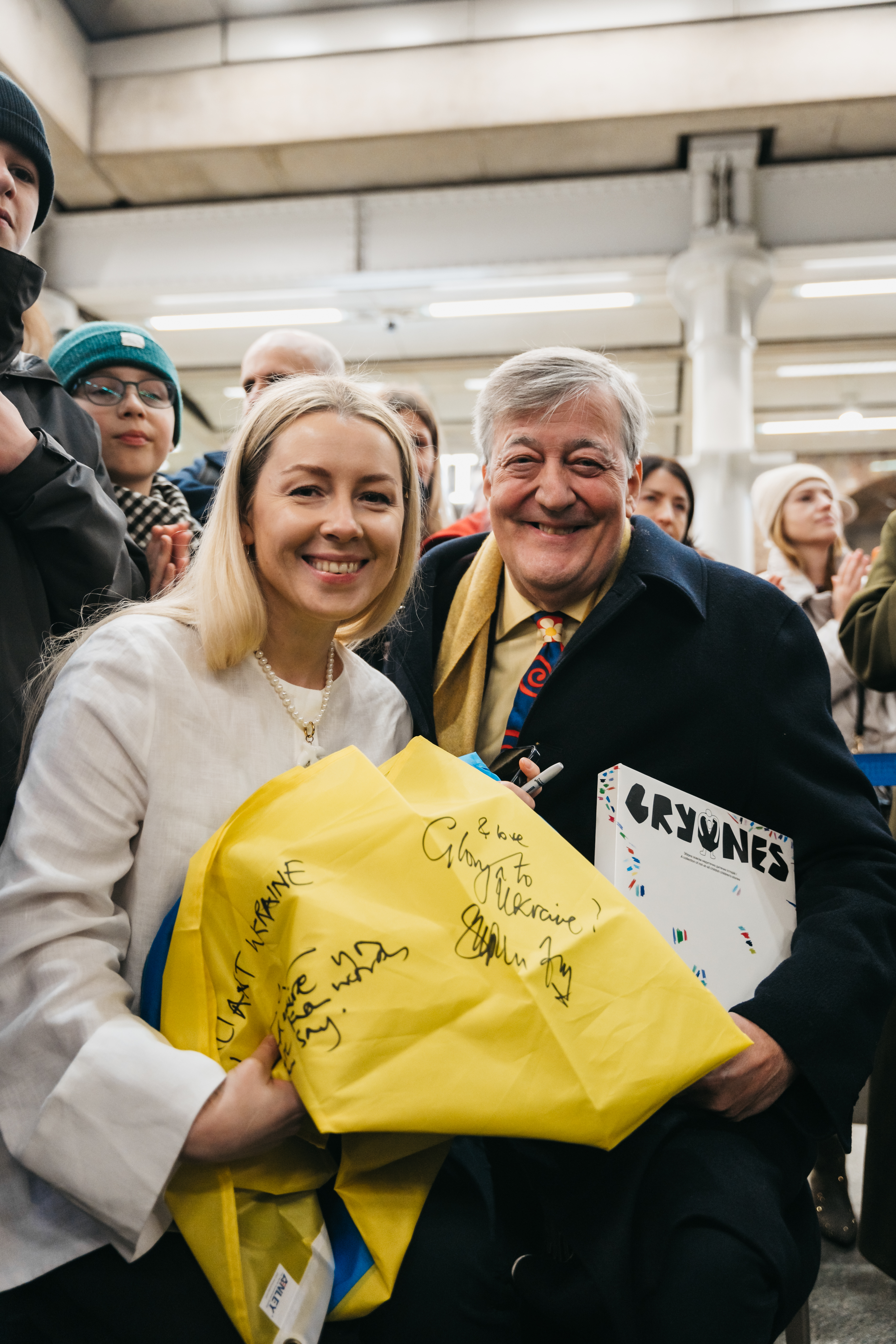
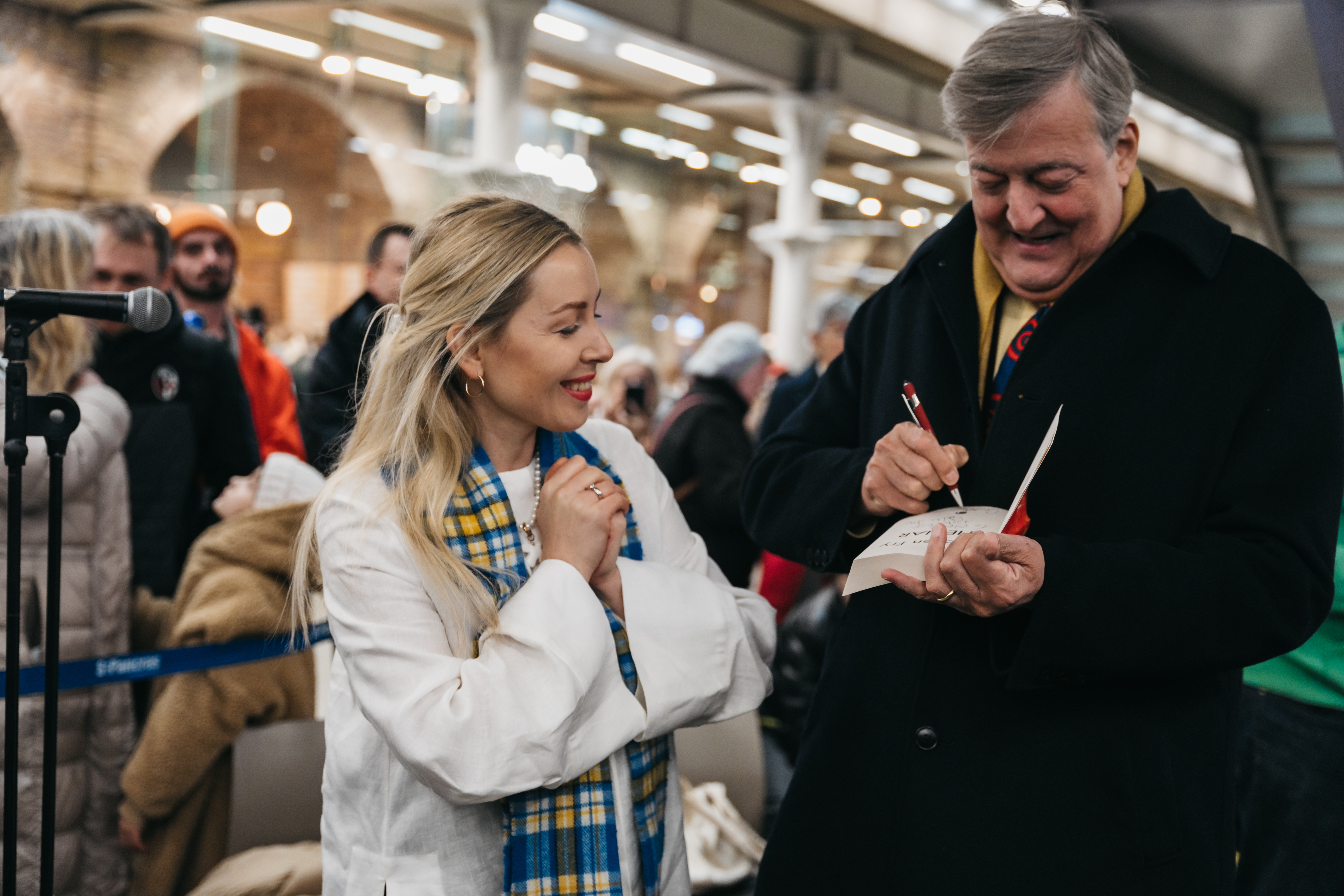
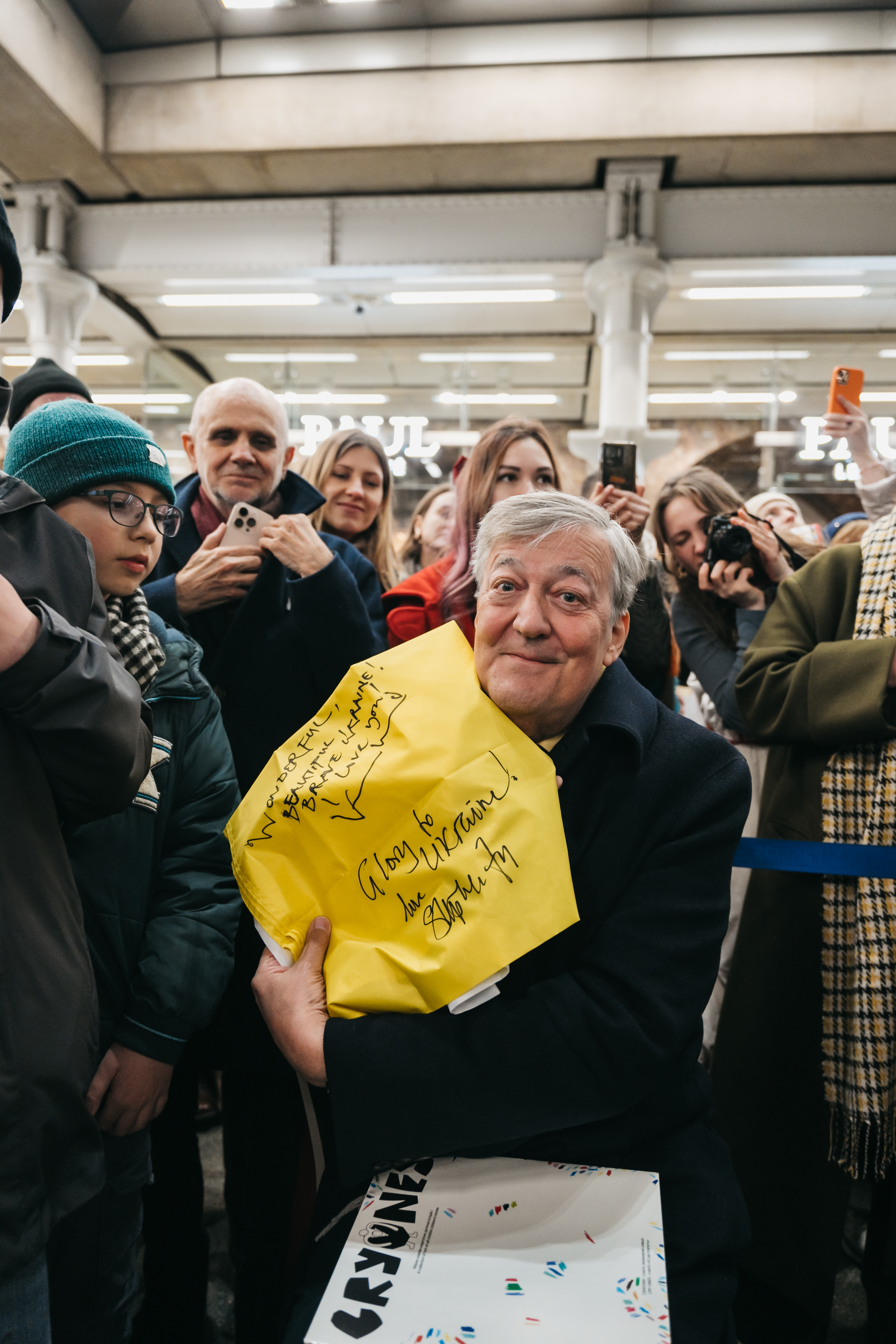
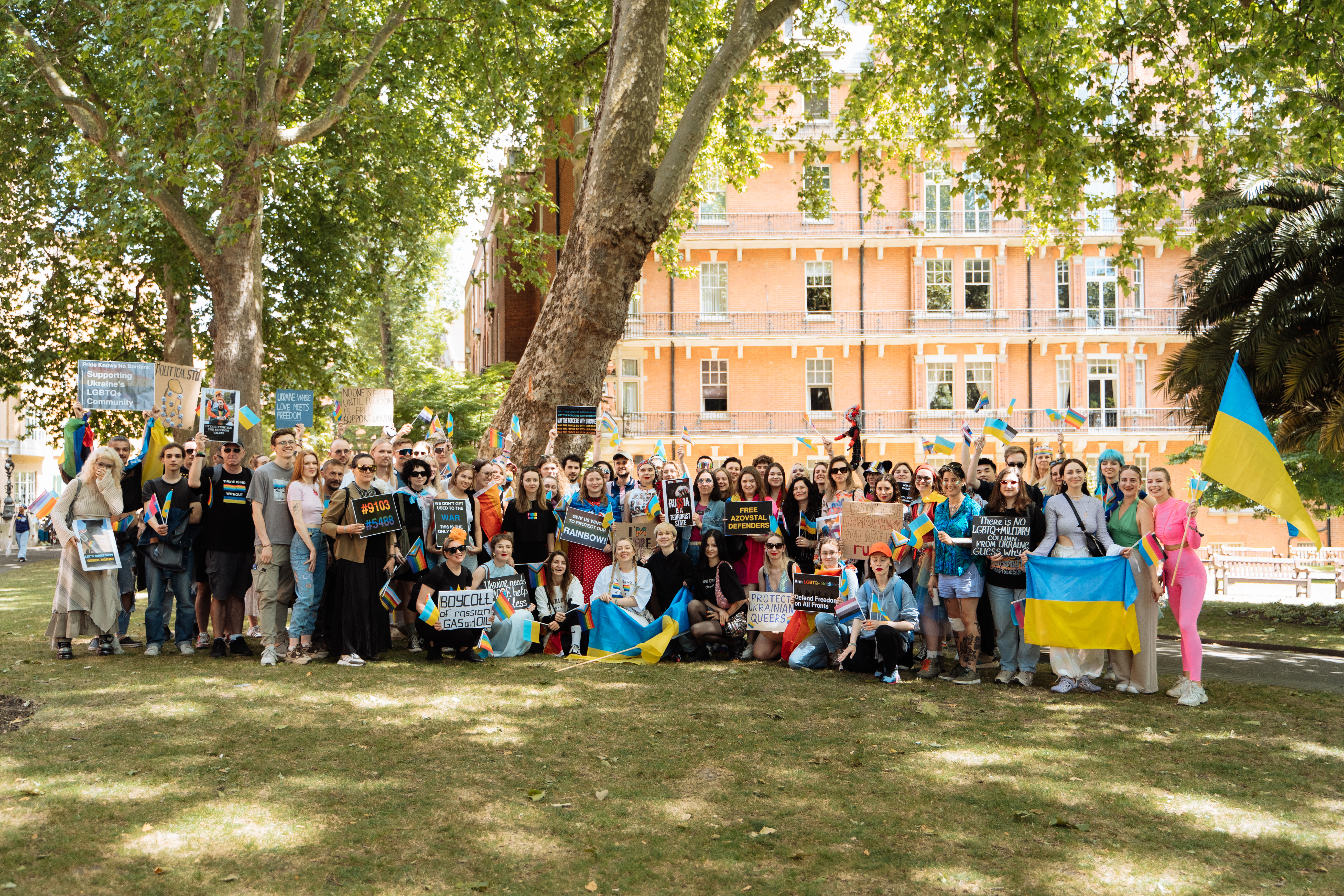
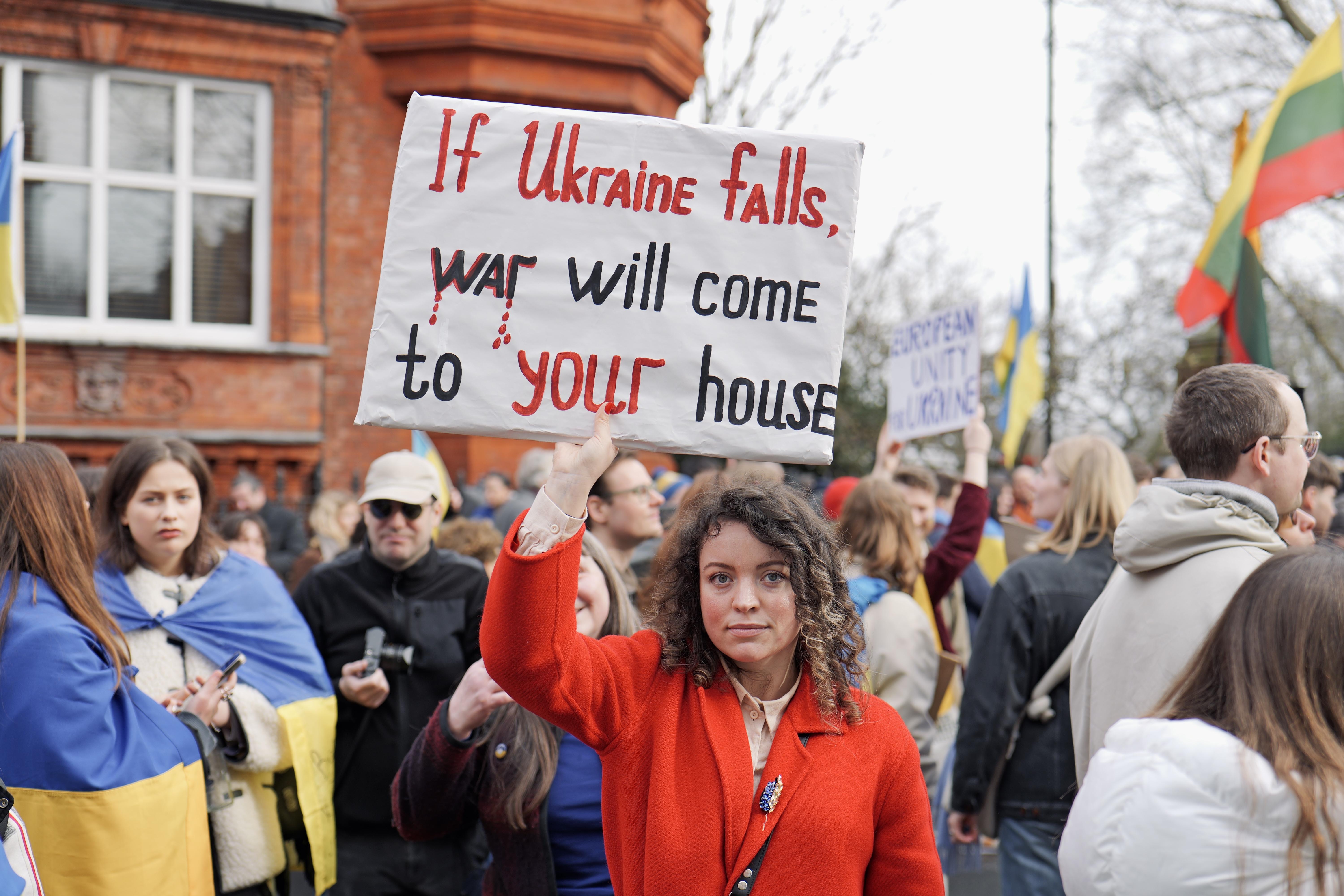
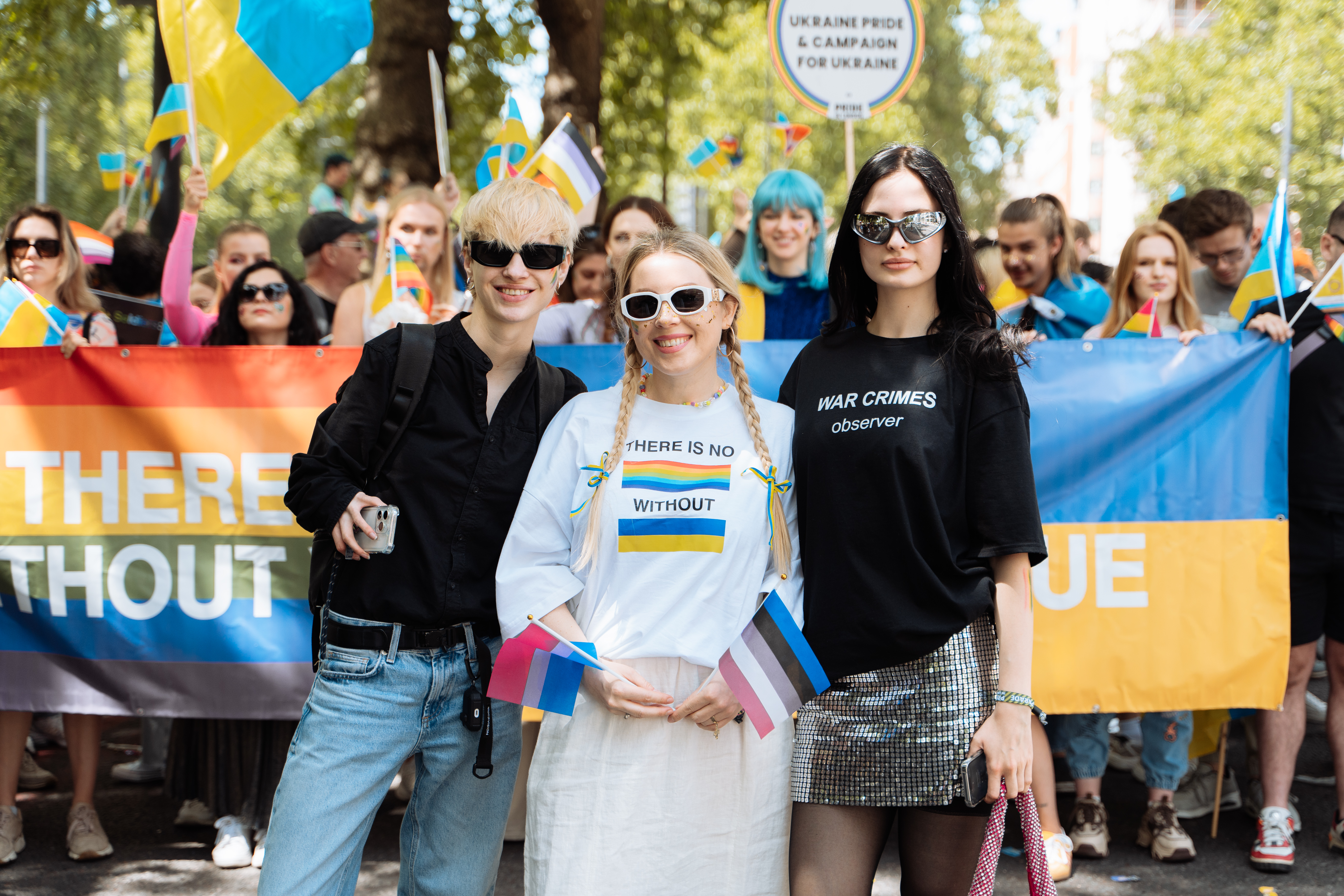
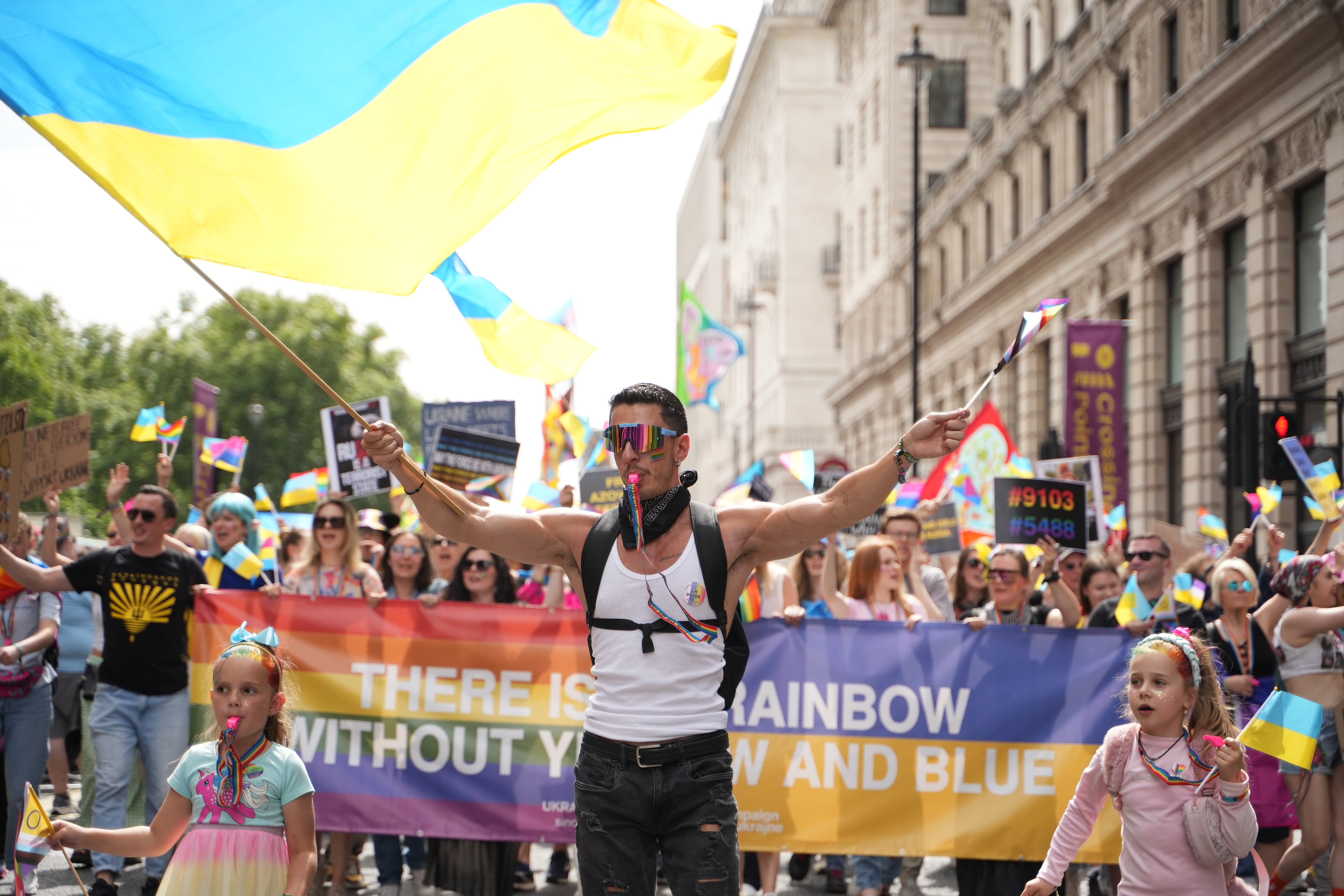
Alongside this, the organisation actively challenges Russian cultural propaganda.
One of such events is a campaign against Russian soprano Anna Netrebko. As culture is never "just culture" when dictators' supporters perform.
Netrebko has long been known for her ties to the Kremlin, she has received an award from Putin and has publicly expressed her admiration for him.****
On September 11, on the day of Netrebko's Tosca premiere in London, Campaign for Ukraine staged a peaceful protest at the theatre entrance. They created a symbolic "Walk of Fame" honouring Ukrainian artists killed by Russian attacks.The action sparked emotional responses: theatre staff and passersby stopped to show support, ask questions, and take photos, while a few Netrebko supporters reacted with hostility.
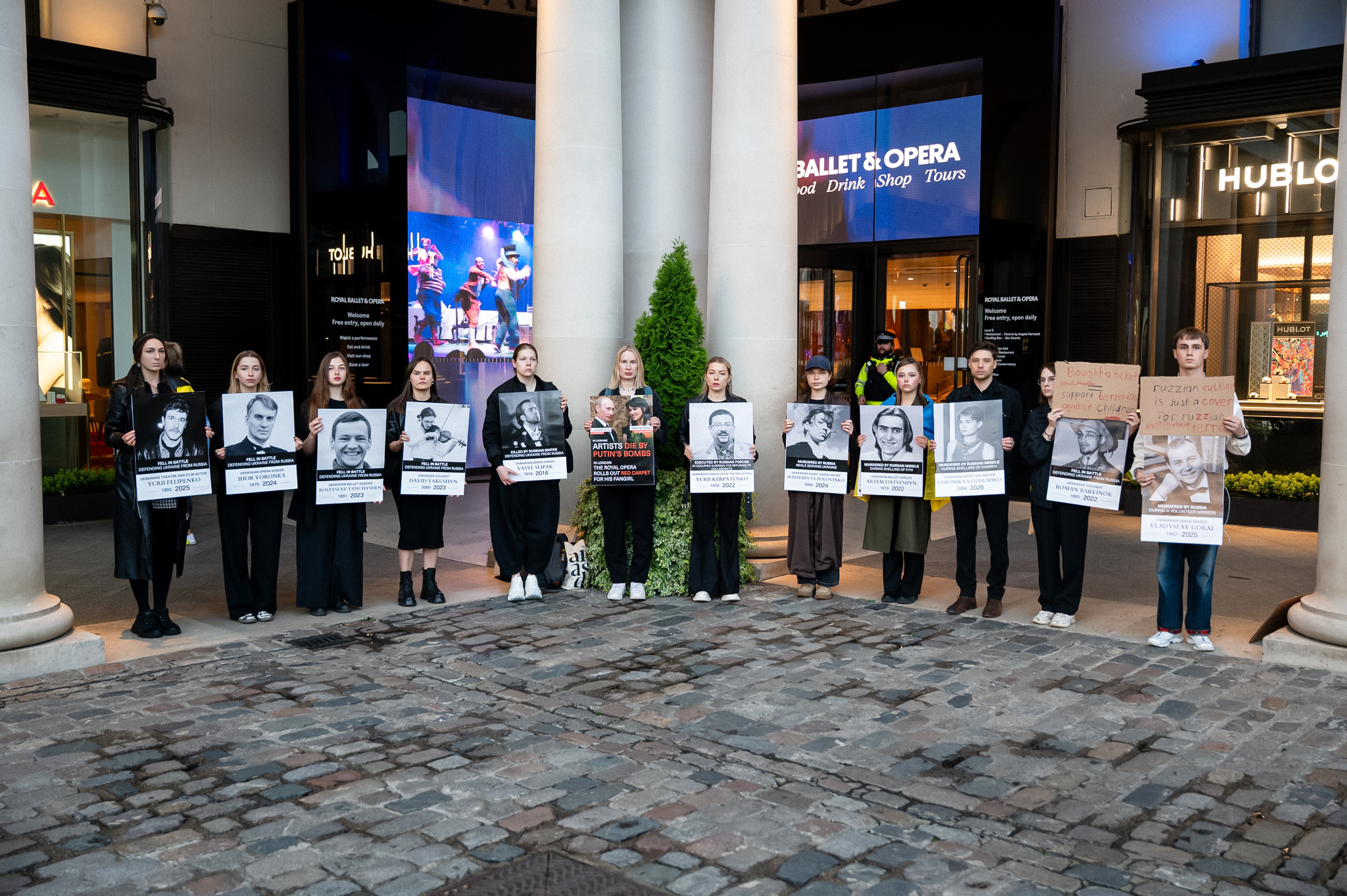
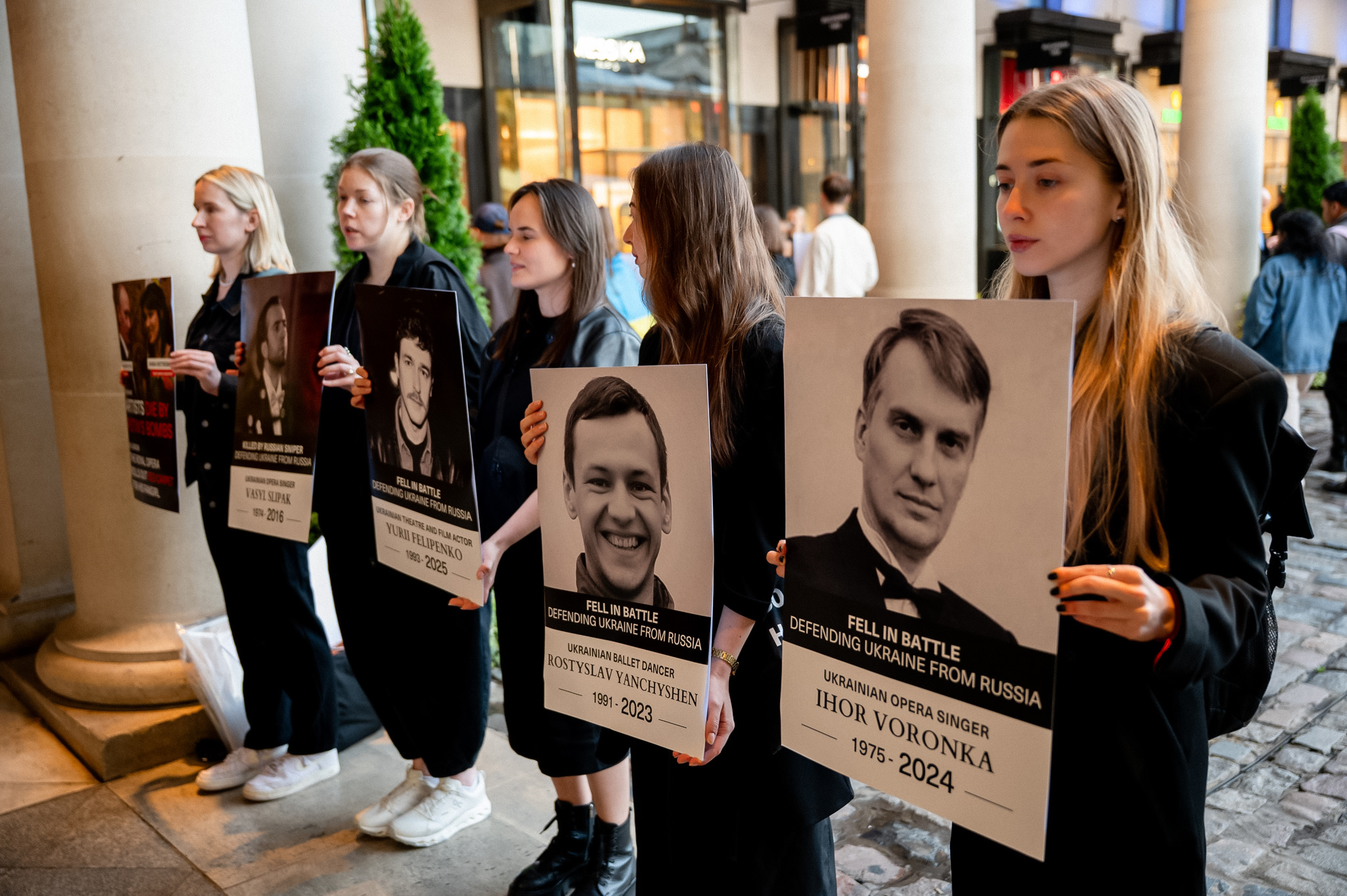
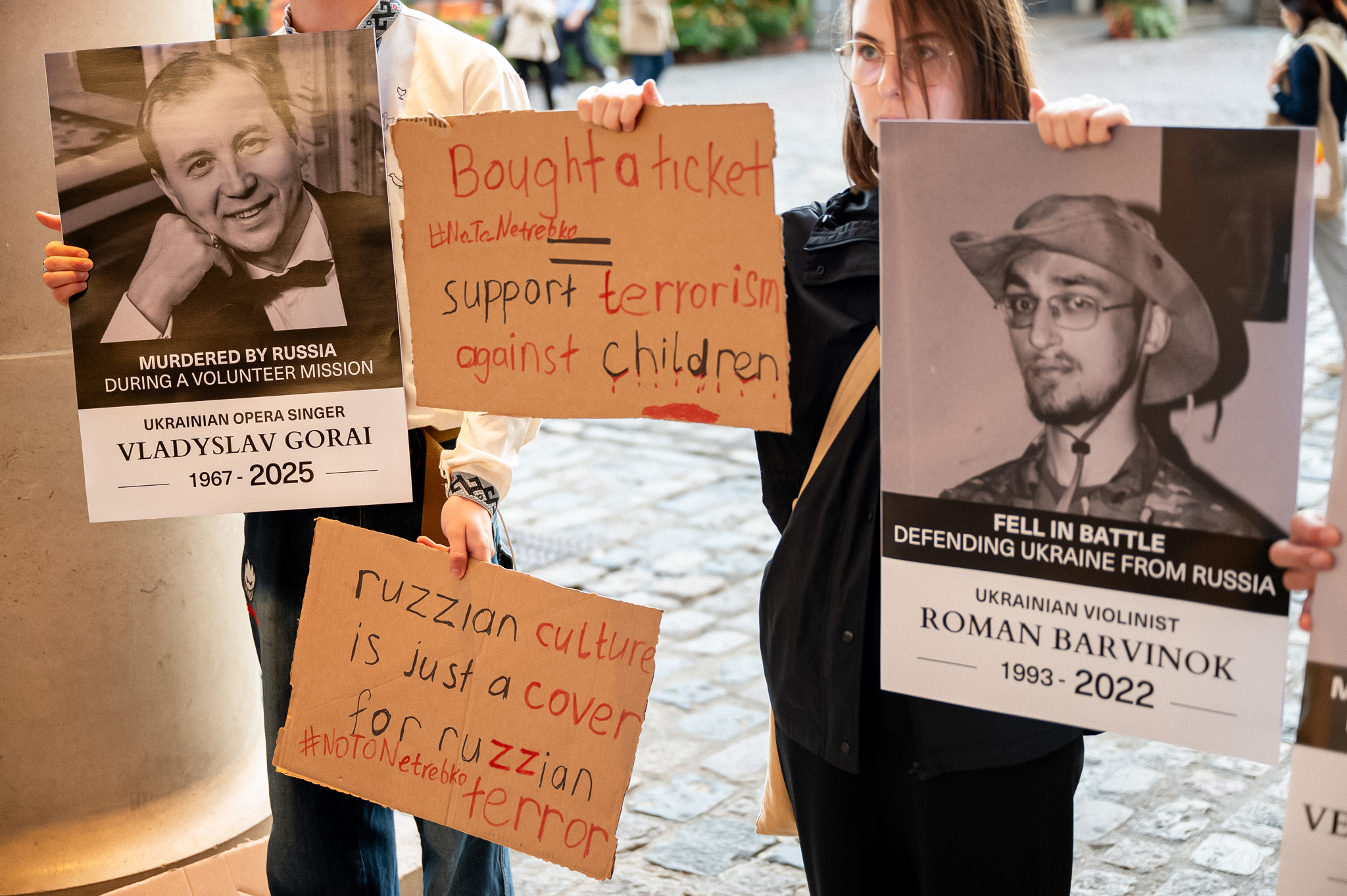
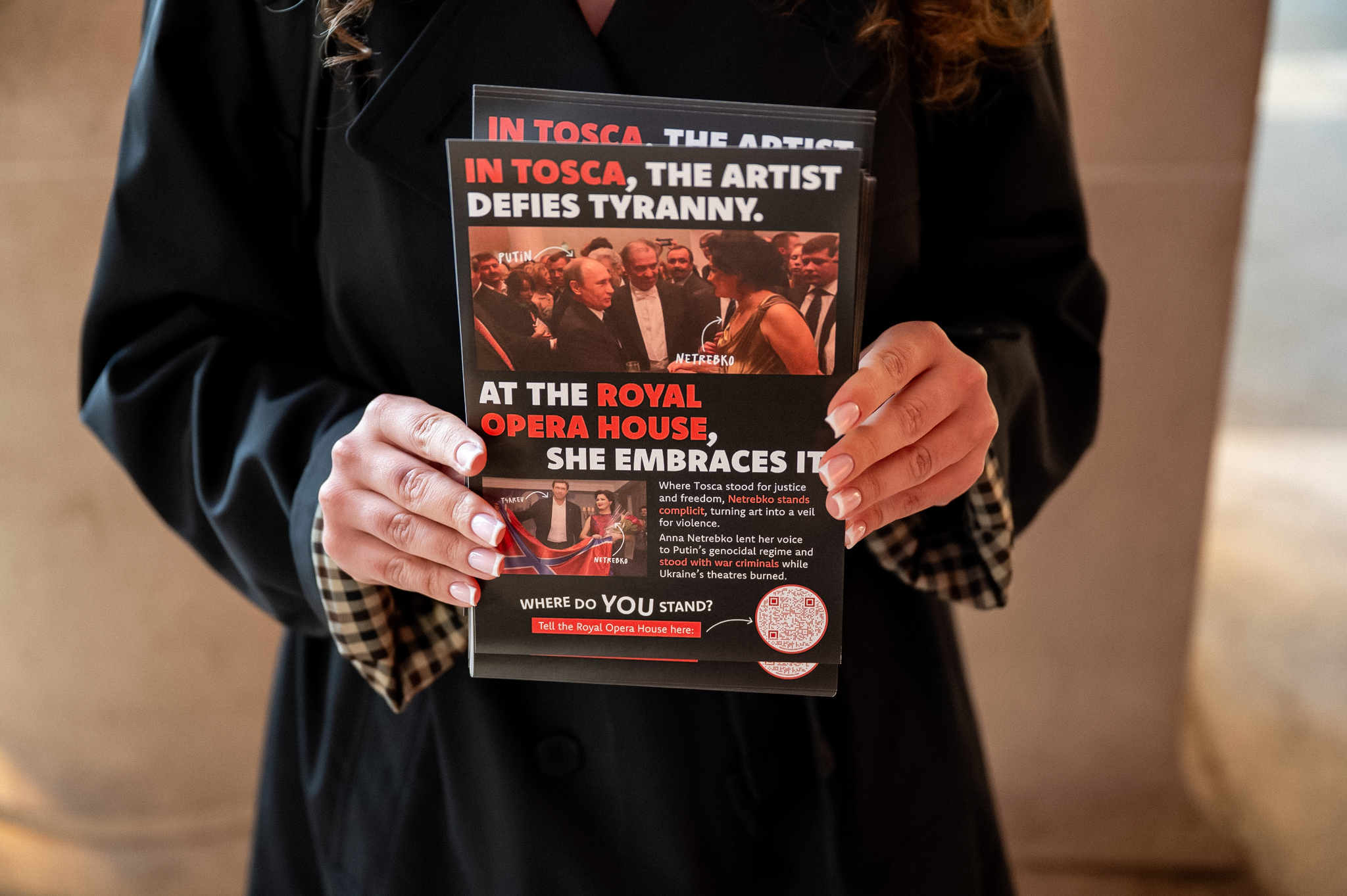
Every time Ukraine is seen, heard and understood, it becomes harder for the aggressor to erase, distort, justify or normalise this war.
Advocacy abroad keeps Ukraine on the global agenda: rallies, letters to politicians, creative campaigns, and public events remind both decision-makers and society that the war is far from over. It's not just about acting - it's about communicating strategically, clearly and with purpose.
The article is produced by UkraineWorld with the support of the Askold and Dir Fund as a part of the Strong Civil Society of Ukraine - a Driver towards Reforms and Democracy project, implemented by ISAR Ednannia, funded by Norway and Sweden. The contents of this publication are the sole responsibility of UkraineWorld and can in no way be taken to reflect the views the Government of Norway, the Government of Sweden and ISAR Ednannia.
interviewed by
